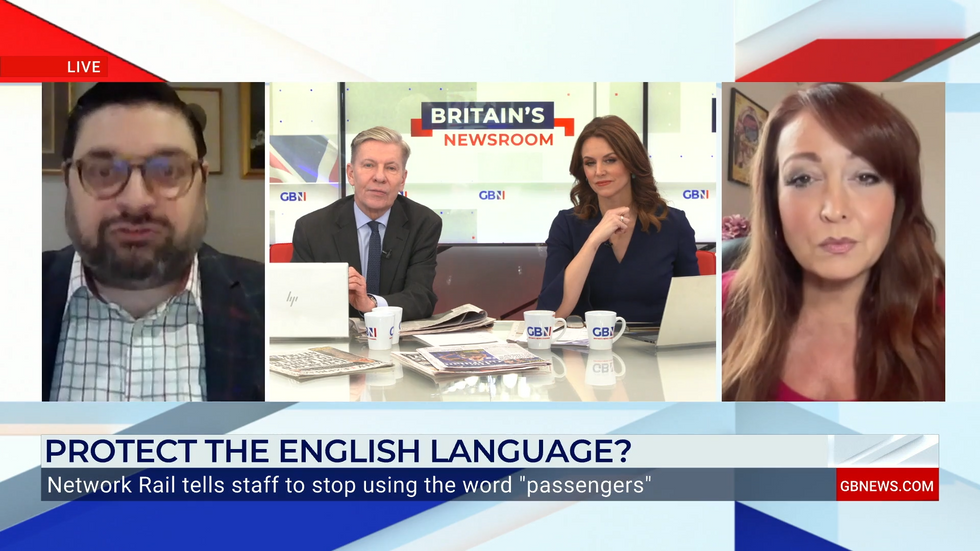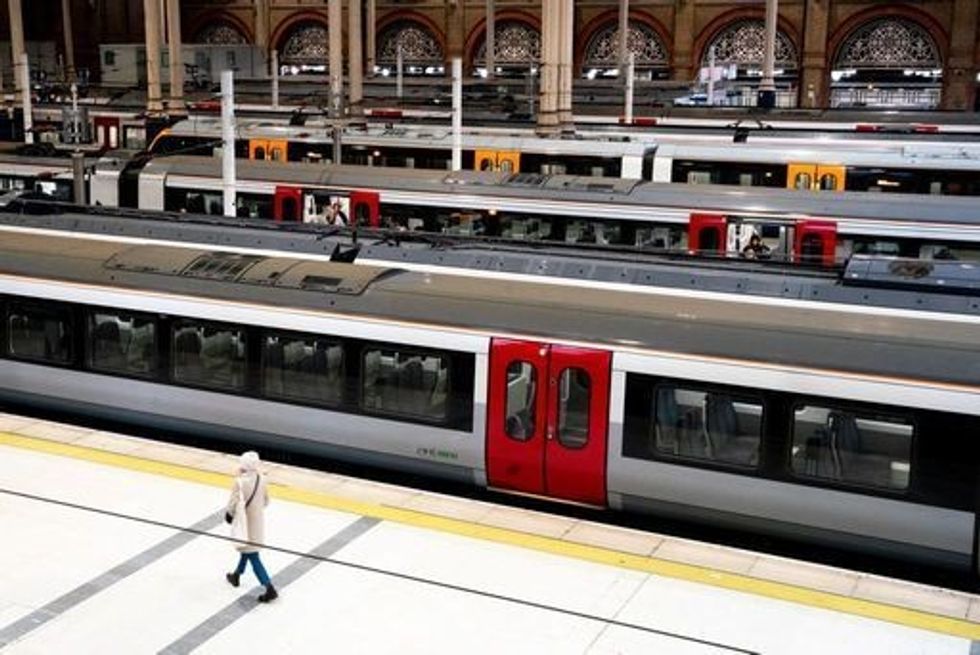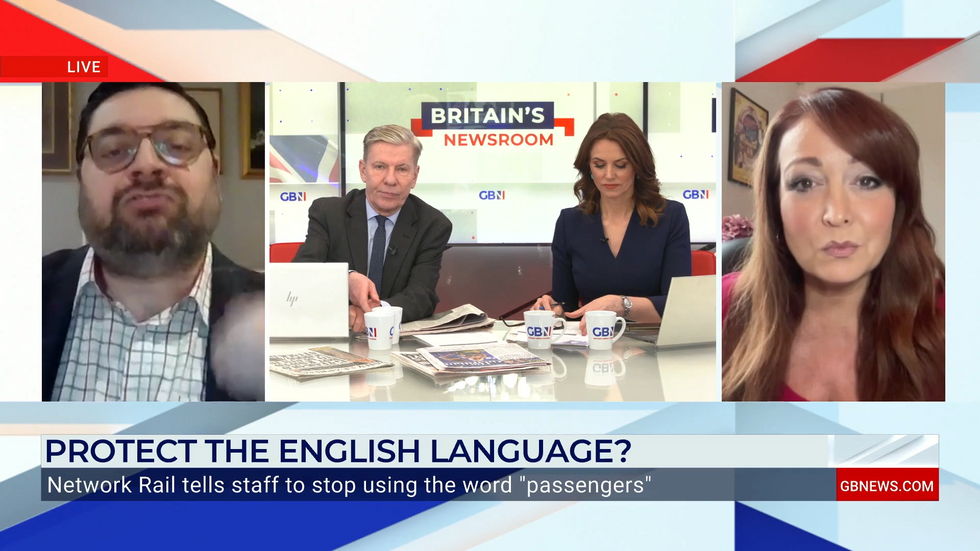‘Actually insidious!’ Rafe Heydel-Mankoo unleashes furious rant at ‘dystopian control’ in language change from Network Rail
A political commentator has launched a scathing attack on Network Rail’s new language guidance, warning of “dystopian control” over staff speech.
Speaking to GB News, Rafe Heydel-Mankoo condemned the rail operator’s 134-page document as “insidious”, saying Britain was “heading down quite a sort of dystopian road” by allowing organisations to control language.
The criticism comes after Network Rail instructed staff to stop using traditional terms like “passenger” in favour of more conversational language.
Speaking to GB News, Rafe Heydel-Mankoo said: “Make no mistake, this sort of stuff is actually insidious.

“We’re heading down quite a dystopian road if we allow organisations to control speech, especially with these sorts of edits which advance an ideological agenda and essentially force staff to adhere to a particular viewpoint.
“I don’t like using the term Orwellian because it’s overused so much.
LATEST DEVELOPMENTS
- Network Rail imposes new ‘woke’ guide as staff told not to use words ‘passenger’ or ‘pregnant women’
- ‘They’ve gone completely woke!’ Andrew Pierce fumes at Network Rail for cancelling term ‘passenger’
- WATCH: Andrew Pierce blasts ‘completely woke’ Network Rail
“I’m sorry, when an organisation forces people to abandon traditional terms like pregnant women for ideologically driven nonsense, like pregnant people it’s quite clearly catching us close to 1984 Newspeak, and that must be resisted.
“It has to be resisted, and it has to be ridiculed. Because we know what’s behind this.
“The guidance from Network Rail says that Network Rail has a duty to eliminate discrimination and advance equality of opportunity.”
Network Rail’s new guidance document, titled “Speaking Passenger”, instructs staff to adopt less formal language when communicating with the public.

The organisation wants employees to address train users as “you” rather than “passenger” to make communication feel more conversational.
Andrew Haines, Network Rail’s CEO, wrote in the document’s introduction: “To put passengers first, we have to speak their language. That goes for all of us. Whoever we’re taking to, whatever the situation.”
The guidance provides clear examples of how Network Rail wants announcements to change, particularly during disruptions.
Instead of formal messages like ‘All services are currently cancelled due to recent storm events’.

“We would like to apologise for the inconvenience this may cause to your journey,” staff are encouraged to be more direct.
The preferred style is: “I’m really sorry everyone but we’ve had to cancel all the trains this evening.
“A tree’s fallen across the tracks just outside the station and it’s going to take a few hours to clear.”

